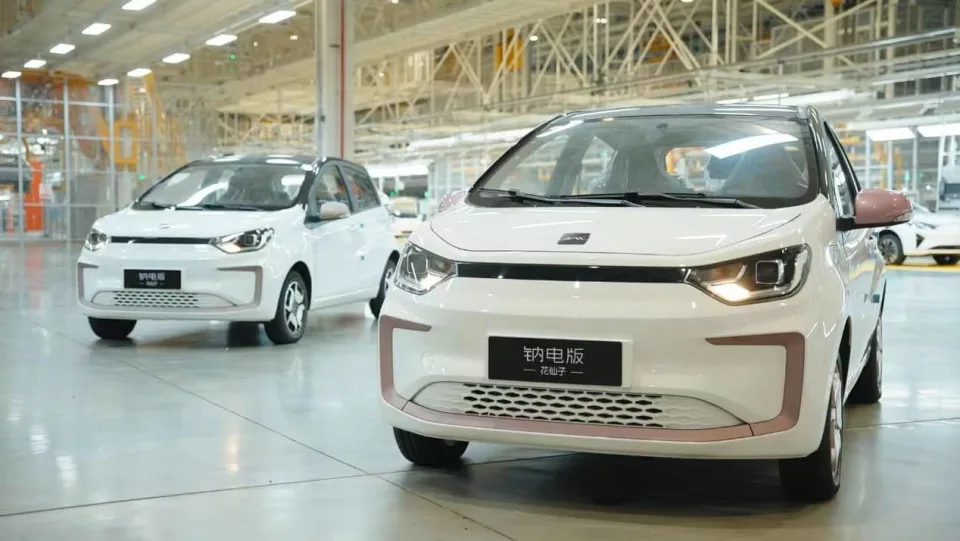
JAC Motors, a Volkswagen-backed Chinese automaker, is set to launch the first mass-produced electric vehicle (EV) with a sodium-ion battery through its new Yiwei brand. Although sodium-ion battery tech has a lower density (and is less mature) than lithium-ion, its lower costs, more abundant supplies and superior cold-weather performance could help accelerate mass EV adoption. CarNewsChina reports that the JAC Yiwei EV hatchback deliveries will begin in January.
Yiwei is a new brand in 2023 for JAC. Volkswagen has a 75 percent stake in (and management control of) JAC and owns 50 percent of JAC’s parent company, Anhui Jianghuai Automobile Group Holdings (JAG). The Chinese government owns the other half of JAG, making for one of the auto industry’s stranger pairings.
The Yiwei EV appears to be a rebranded version of the Sehol E10X hatchback (above), announced earlier this year. CarNewsChina describes the Sehol model as having a 252 km (157 miles) range with a 25 kWh capacity, 120 Wh / kg energy density, 3C to 4C charging, and a HiNa NaCR32140 cell. When JAC revealed the Yiwei brand in May, it said it would drop the Sehol label and rebrand all its vehicles to either JAC or Yiwei, leading us to this week’s EV reveal. JAC hasn’t yet said whether the Yiwei-branded model will keep the E10X moniker.
In April, JAC showcased a separate EV called the Yiwei 3 at the Shanghai Auto Show. That model launched in June with an LFP lithium battery, promising the sodium-ion variant would launch later.
The new Yiwei EV reportedly uses cylindrical sodium-ion cells from HiNA Battery. JAC assembles the batteries in the company’s modular UE (Unitized Encapsulation) honeycomb structure, similar to CATL’s CTP (cell-to-pack) and BYD’s Blade. The layout can provide for greater stability and performance.